The extraction of minerals that shape the future of our world, such as lithium, tantalum, tin, and tungsten, requires an innovative approach to Environmental, Social, and Governance (ESG) practices. Tantalex’s clients and an increasing number of end consumers aspire to a cleaner energy and climate-friendly future, expecting mining operations to become more and more environmentally and socially responsible.
Never to this day has the way to achieve production successes mattered as much as these successes themselves.
![]() Environmental Conservation. In the era of climate change and need for biodiversity preservation, it is essential to minimize negative environmental impacts through thoughtful mine planning based on thorough baseline studies.
Environmental Conservation. In the era of climate change and need for biodiversity preservation, it is essential to minimize negative environmental impacts through thoughtful mine planning based on thorough baseline studies.
Adopting sustainable and resource-efficient mining practices, preserving ecological services that benefit local communities, preventing air, soil, and water pollution, and rapidly rehabilitating affected areas are crucial. Considering circular economy principles, revamped management of mining and non-mining waste, and involving communities, scientists, and environmental NGOs are equally important.
To achieve these goals, Tantalex foster a three-way approach to environmental and social impact assessment and mitigation:
- International scientific expertise – through SRK Consulting (South Africa)
- Knowledge of regional habitats and national regulatory context – through Transfields SARL (Lubumbashi)
- Traditional knowledge of communities directly affected by the project (three Chiefdoms)
Tantalex commits to responsible management of natural resources, striving to do more with less and incorporating technological advancements into the mining process. Minimizing water consumption, optimizing energy use, reducing greenhouse gas emissions, promoting energy efficiency, applying Lean Management practices, and utilizing clean technologies wherever possible are all objectives pursued by Tantalex engineers.
 Social Performance. No window dressing. No competition with government services and socioeconomic development organizations. Not seeking to conceal questionable industrial practices or play country savior. Instead, Tantalex acknowledges the increasing demand for genuine corporate responsibility from local communities, stakeholders, customers, and international lenders. This entails being accountable for the impacts and effects of mining activities on the environment and society.
Social Performance. No window dressing. No competition with government services and socioeconomic development organizations. Not seeking to conceal questionable industrial practices or play country savior. Instead, Tantalex acknowledges the increasing demand for genuine corporate responsibility from local communities, stakeholders, customers, and international lenders. This entails being accountable for the impacts and effects of mining activities on the environment and society.
Tantalex continuously monitors and recognizes potentially undesirable impacts of its operations and commits to participating in their remediation. For instance, Tantalex’s presence in Manono may unintentionally lead to a significant influx of job seekers and families hoping for a better future. This migratory flow may strain social cohesion, increase pressure on water and energy resources, escalate environmental impacts due to overcrowding, and give rise to issues such as crime, prostitution, and diseases while driving up consumer prices.
Tantalex’s activities in the territories of Manono and Malemba-Nkulu will result in a fresh injection of money, seemingly beneficial for local populations. However, the company acknowledges that this monetary influx might disrupt social traditions, authority structures, and gender roles. To address these issues responsibly, Tantalex commits to close collaboration with:
- Local administration
- Active members of civil society
- Business community
In assuming this responsibility, Tantalex intends to implement effective initiatives, including:
Establishing local development committees in the two operating territories (Manono, Malemba-Nkulu) to address challenges and mitigate cumulative impacts of mining activities in the region. These committees will develop community-oriented investment plans tailored to the needs of the affected communities.
Securing a responsible supply chain that includes artisanal miners. Rather than shunning these workers, often considered undesirable, Tantalex supports their production in controlled zones – classified as blue site following the standards of the International Conference on the Great Lakes Region – and segregated from its mechanized production. Health and safety considerations are addressed, and mechanisms are put in place to prohibit child labor and encourage alternative professional pathways for women. Tantalex is working toward aligning with the OECD Due Diligence Guidance for Responsible Supply Chains of Minerals from Conflict-Affected and High-Risk Areas.
Establishing a local recruitment and training committee to address concerns related to multi-employer local hiring, workforce preparation, long-term training to meet mining industry standards, and the creation of quality jobs accessible to the local workforce.
Establishing a local purchasing and entrepreneurship support committee to jointly address local inflation and increase the local share of markets and purchases by enhancing subcontractors’ management capacities, fostering competitive approaches, and improving their understanding of Tantalex’s supply mechanisms.
Developing a concerted socio-economic development plan, fully respecting the provisions laid out in the DRC Mining Regulation (2018) and inspired in particular by the recommendations of the Carter Center. This plan aims to guide the selection of projects by communities, ensuring their sustainability beyond mine closure. Tantalex has partnered with the Carter Center to enhance the preparation of this plan, with particular attention given to the water-energy-food continuum.
Providing fair compensations to landowners and users, calculated in consultation with relevant stakeholders and regulatory authorities when impacting cultivated lands or family dwellings for the establishment of Tantalex’s industrial infrastructure.
Protecting and enhancing sensitive sites of collective cultural heritage within the local community. Beyond burials and official places of worship, Tantalex considers less tangible sites, such as places of celebration, historical landmarks, or initiation grounds.
![]()
Governance: As a pioneer in the two provinces where it operates, Tantalex considers exemplary business conduct as an additional responsibility. This responsibility includes two core duties:
- Transparent, responsible, and ethical project management, involving the adoption of impeccable corporate practices, adherence to relevant international directives, laws, and regulations, promoting integrity and accountability, and ensuring effective risk management.
- Building positive relationships with stakeholders in the community and asking for noble and respectful demeanors from all personnel are of paramount importance. Tantalex’s workers are visible and accessible in the host community, frequenting its shops, restaurants, public places, and actively participating in community life like any other citizen.
The world relies on both new metals and new ESG approaches from mining companies. Tantalex is firmly committed to this path and has made it a priority for continuous improvement since its inception in the Democratic Republic of Congo.
A company’s trajectory is not solely defined by its profits, but also by the positive impact it imparts on society, the environment and governance. Through its concrete, collaborative initiatives, Tantalex demonstrates its forward-thinking vision and deep commitment to operating beyond conventional standards. By placing community needs and concerns at the heart of its actions, while embracing environmentally sustainable practices and despite vast challenges, Tantalex aspires not just to be a leader in mineral extraction, but also in executing a truly transformative ESG approach involving determination, transparency and innovation.

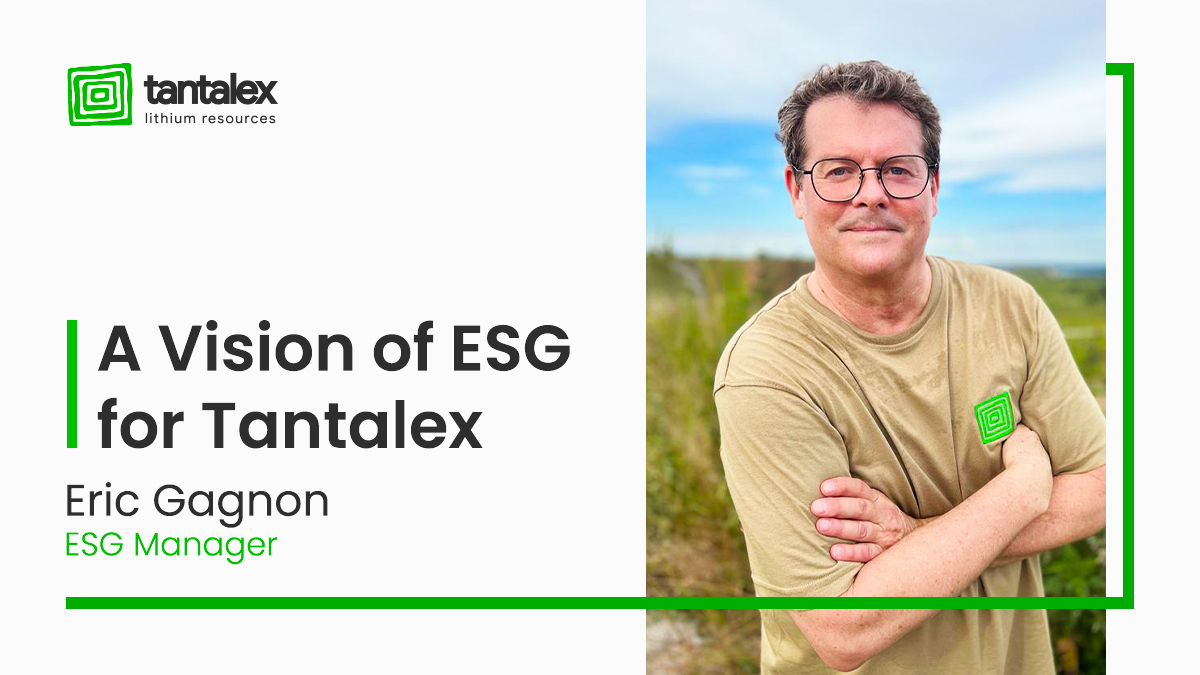
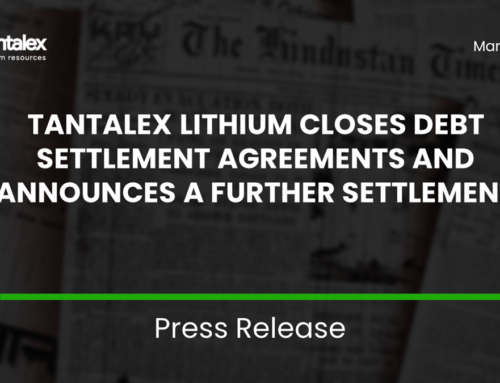
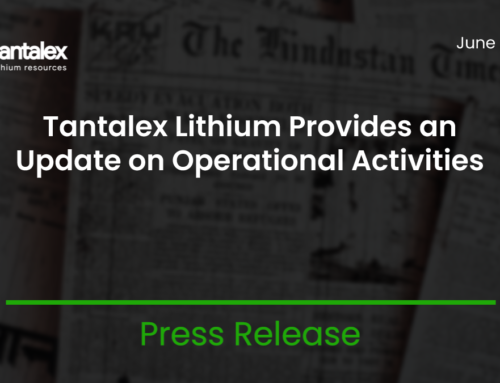
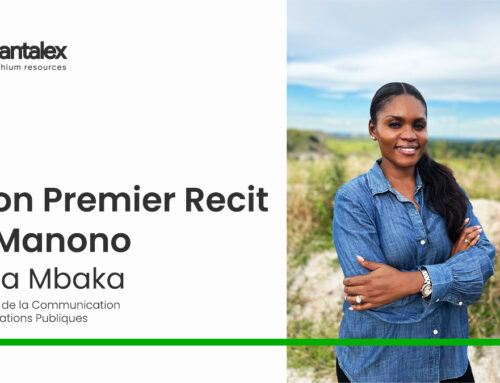
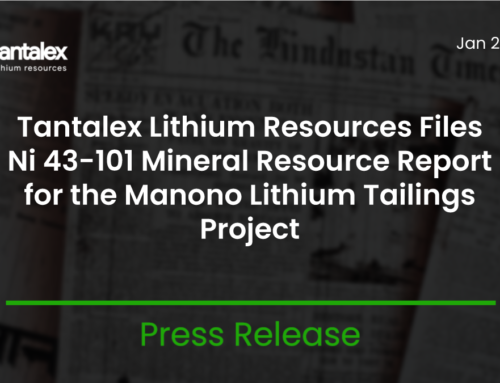
Leave A Comment